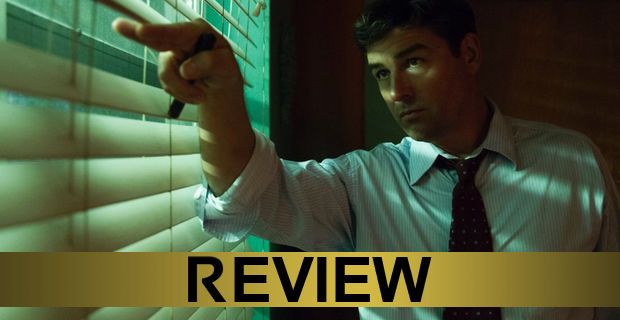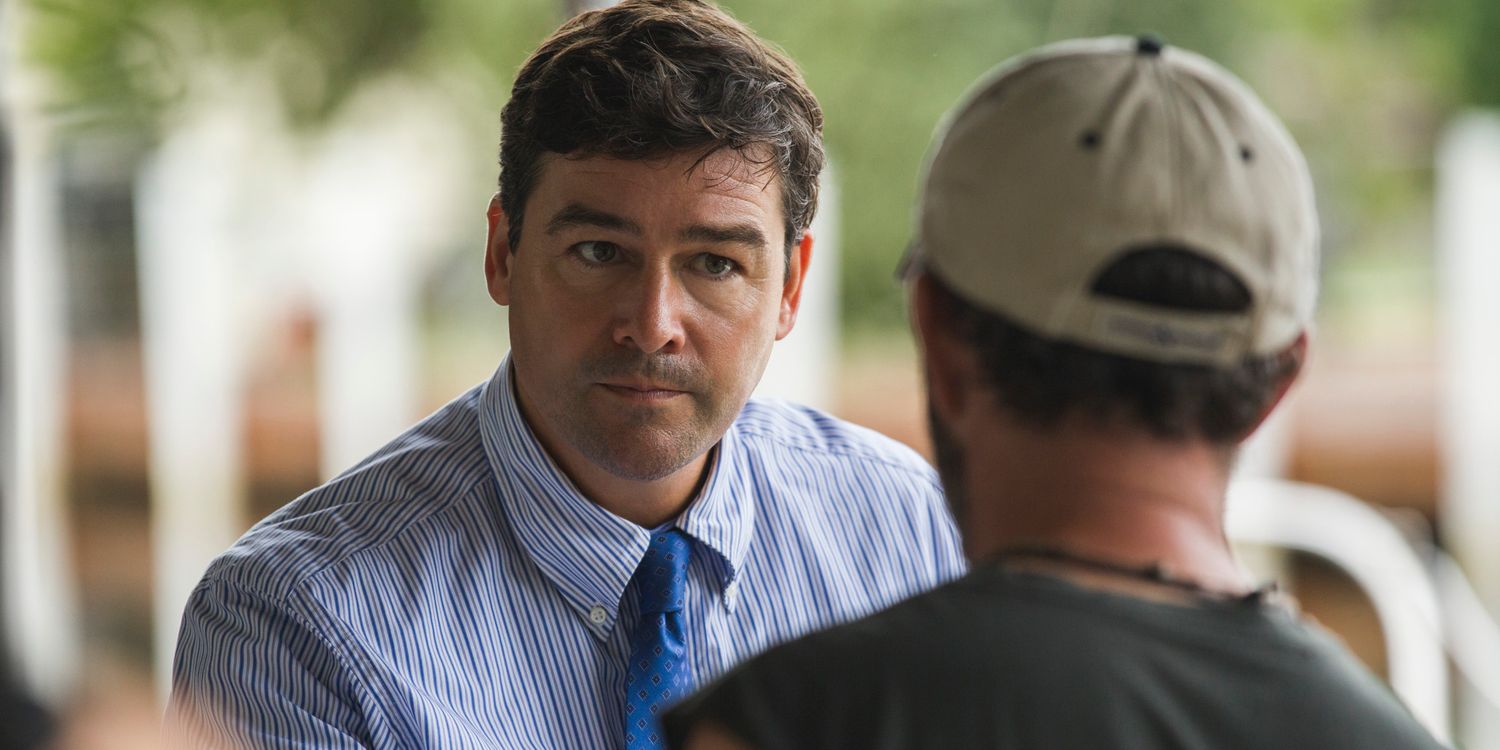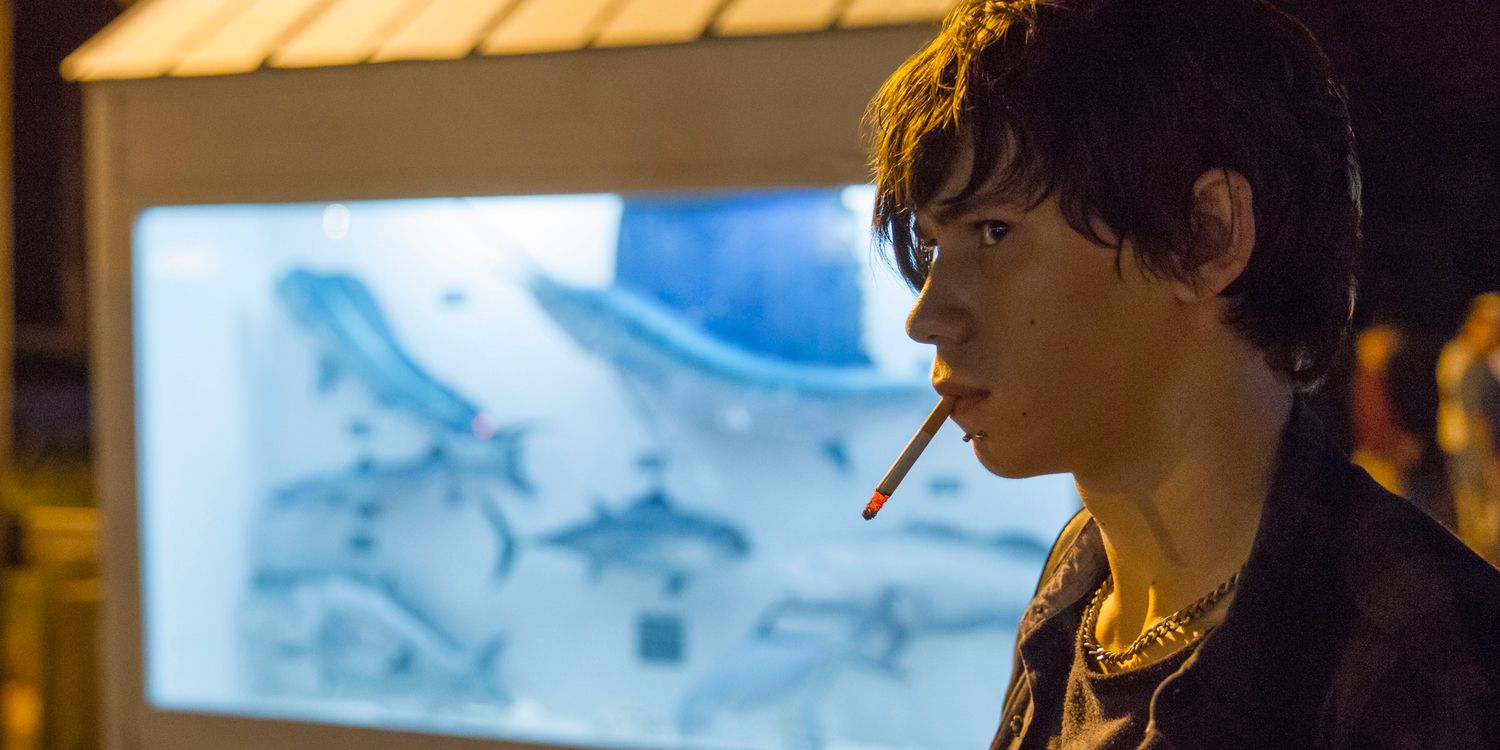[This is a review of Bloodline season 2, episode 10. There will be SPOILERS.]
-
Given that in season 1 of Bloodline all roads led to the death of the series' best and most interesting character, season 2 worked to squeeze blood from the proverbial narrative stone by taking the "bad thing" the three main Rayburn siblings had done, and use it to usher in another kind of end, one that would see the lives of John, Kevin, and Meg fall apart over the course of the next batch of episodes. That made for an interesting transition for a series pinning its raison d'être to a single event that, due to how the first season's cheeky chronology turned the twist of Danny's death into a long 13-hour promise, is now required to carry an additional 10 hours of story convinced the fallout from a case of fratricide will yield as good if not better results than before. It's a huge gamble as it turns the series from a twisty non-mystery into a straightforward drama of watching people almost willfully make a bad situation worse.
To its credit, the shorter second season of Bloodline follows through on its promise of watching the Rayburns lives fall apart. Creators Todd Kessler, Glenn Kessler, and Daniel Zelman have built a reputation of creating stories wherein characters who enjoy the perks of a relatively high socioeconomic standing become unwitting participants in the destruction of their own privilege. The idea is to fill a season with a sense of unease, the belief that this is in some way a tragedy, when really it's just comeuppance.
On one hand, the series is one giant schadenfruede; a drama about the cost of morality wrapped up in the rapid in decline of a privileged family prone to harboring dark secrets. Bloodline is always drawing a line between the haves and the have nots that is intended to underline the larger dramatic impact of what the Rayburns have done. In season 1 it was Danny, the black sheep of the Rayburn clan who was assigned that station in life by a bit of atrociously bad luck. His sister died under his watch and the rest of the family failed him; they failed him again and again until they killed him.
Therein lies the tragedy of the series, but it quickly evaporates once the plot turns into the surviving Rayburn siblings trying to get away with murder. In other words, as John narrated in season 1: "We're not bad people, but we did a bad thing." The trick is: of course they're bad people. The whole series is filled with nothing but bad people. Each and every Rayburn from John down to his boring kids is, in their own unique way, a miserable, unlikeable individual. That's what makes the oft-repeated question of: "Am I a good person?" feel like an in-joke after about five minutes of watching. It makes you want to scream at your television: "Of course you're not a good person!" Whether by design or purely by accident, Bloodline is wall-to-wall insufferable human beings.
That puts the series in an interesting place as the plot actively seeks punishment for its main characters. It's not like The Sopranos or Breaking Bad where Tony or Walt instill conflicting emotions in the audience where their horrible actions call for punishment and yet those watching might prefer to see that not happen. As bad as things got, there was an emotional investment in Tony and in Walt that is missing in Bloodline.You could see how things might be different if the series were focused on Danny – considering his family's treatment of him – but John, Kevin, and Meg? Not so much.
Even as the season attempted to insert Danny's son Nolan (Owen Teague) into the narrative as a sympathetic surrogate for Ben Mendelsohn, it came up short. Nolan's behavior early on was so off-putting, and his involvement with John Leguizamo's Ozzy so underdeveloped that by the time he is raking the beach and waving in earnest to his grandmother Sally (Sissy Spacek) the intended emotional impact of the moment feels unearned. Nolan begins as a living reminder of his dead father – especially for those who killed and helped cover up his Danny's murder – and yet the series never manages to take him beyond that device. It's never quite made clear who this kid is and what he means to the rest of the story.
There are hints that Nolan represents a chance to make things right when it comes to Danny. Sally becomes the first, by welcoming him and his mother Evangeline (Andrea Riseborough) into her life and her home. But Sally was only complicit in Danny's mistreatment by his father. What is Nolan to do with his aunt and uncles? Were it not for Danny's death, it stands to reason Nolan wouldn't have been introduced to the Rayburns in the way he was. And given his limited emotional attachment to his father, the possibility of Nolan wanting retribution for his death might be a tricky proposition. Which leaves the kid in a tricky place in terms of the narrative as a whole, especially as it continues to revolve around John, Kevin, and Meg wrestling with the morality of what they've done.
There's potential for Nolan to become something more important to the story, but season 2 never gets around to deciding what that is. In fact season 2 is filler, where the purpose is to create tension with a series of mini conflicts and improbable resolutions, followed by more conflict. It's a series of things that happen without leading to something bigger or more meaningful. Bloodline is so wrapped up in this rinse-and-repeat method of introducing conflict and building tension, it doesn't see the end coming.
And so, episode 10 takes the series and the audience by surprise. It's a non-ending; an escalation of events designed to compel the audience to binge the next hour even though they have to get up for work in the morning. The twist here is: there is no next episode. That's it. Kevin (Norbert Leo Butz) kills Marco (Enrique Murciano) in an act of desperation; Meg (Linda Cardellini) goes to confess her sins to her mom; and John spares the life of Eric O'Bannon (Jamie McShane) and drives off into the night with the ghost of Danny goading him into pulling a Danny. That is: running away from his problems because trying to fix them just makes a bad situation worse.
It is a season filled with shortcomings, but none as glaring as how the Netflix all-at-once model resulted in episodes lacking a true episodic structure and a season that ends without warning. You can call it a cliffhanger if you like, but really, it's a non-ending. Streaming shows have developed a bad habit of stringing the audience along for hours on end; leaving episodes open so the next hour connects as seamlessly as possible. That may work for the binge-watching model, but it makes for seasons that drag in the middle and don't conclude; they just drift off. Shows like Bloodline would do well to understand the promise of more must be hinged on a potential fixed endpoint to the story, not the tacit implication that the story is never going to end.
-
Bloodline seasons 1 and 2 are available in their entirety on Netflix.



